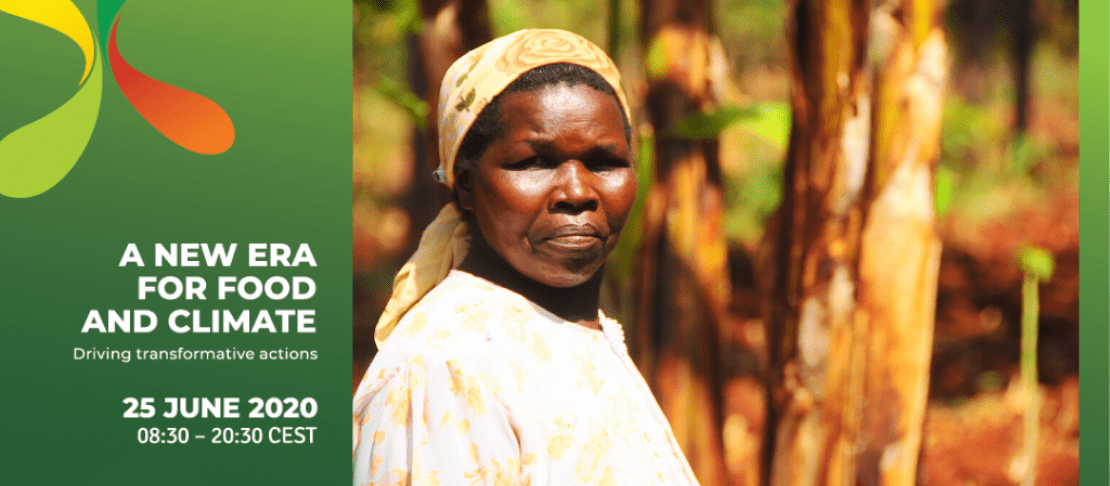Driving social change for sustainable decisions: Gender-inclusive agricultural transformation

What lessons have we learned about building capacity and empowering farmers, consumers, women, and youth to achieve transformative change in the food system? We need to encourage producers, business owners, researchers, investors, and policymakers to innovate in ways that promote gender equality and opportunities for youth. We also need to support empowering strategies with women and men farmers on the ground, like participation in collective action, such as farmers' organizations (FOs) and self-help groups. We can also empower women and promote their resilience by enabling them to access the inputs, information, and resources required to adopt climate-smart agriculture (CSA) practices. These actions also increase agency through shared decision making with men in communities and households.
Examples of empowerment
Join the discussion on “Driving social change for more sustainable decisions,” part of the A New Era for Food and Climate virtual event on 25 June. |
|---|
For example, a collective action and technology training approach, implemented by the CGIAR Research Program on Climate Change, Agriculture and Food Security (CCAFS) and partners in the climate-smart village of Daga-Birame in Senegal, promoted women’s resilience by increasing agricultural production and promoting natural resource management. Women and men participated equally on a community environment committee and a women-run microenterprise was established to process and sell fruit powder made from local baobab trees. Marketing and income management were carried out exclusively through the women-run enterprise, with a village savings pool set up to invest in community resilience activities. Overall, women’s control over forest resources and participation in community decision making has increased.
The Asian Farmers Association for Sustainable Rural Development, through the International Fund for Agricultural Development's (IFAD) co-financed Medium Term Cooperation Program Phase 2 (MTCP2), has taken concrete steps to increase membership, including leadership, of women farmers to ensure they benefit from capacity development activities. Between 2014 and 2019, the proportion of women members increased from 24 to 48 percent. Women’s representation in leadership also increased, from 24 percent in 2014 to 63 percent in 2019. Recognizing the important role women play in agriculture in the region, capacity development activities with FO's have targeted women. A special effort has been made to ensure they participate in FO governance and activities—between 2014 and 2019, female membership quadrupled, from 4.5 million to 21 million. In particular, one major step taken to promote empowerment has been to set up women’s committees and desks in support of the 30 percent target for women's participation in all activities and elective positions in FOs.
To empower women farmers, institutions need to make radical shifts from "business as usual."
To empower women farmers, institutions need to make radical shifts from "business as usual." The use of mobile phones can increase women’s access to information and inclusive finance, although gender-responsive strategies for information channels, formats, content, and financial accessibility are needed. Inclusive finance strategies ensure women can access and control finance, credit, and risk management avenues such as index insurance. CSA practices and technologies have trade-offs that need to be monitored, such as increases in women’s time and labor, or effects on access to resources, incomes, and decision making power.
Measuring empowerment
There are many ongoing efforts to monitor and measure these dimensions (and possibly assess trade-offs). For example, one of the IFAD Core Outcome Indicators measures the “Percentage of individuals demonstrating an improvement in empowerment” and must be sex-disaggregated. It includes 10 of the 12 dimensions of the project-level Women’s Empowerment in Agriculture Index (pro-WEAI), focusing on those which can be influenced through IFAD’s supported activities. These dimensions are mapped to three domains of empowerment: intrinsic agency (power within), instrumental agency (power to), and collective agency (power with), which are linked to the definition of empowerment. The CCAFS-developed Gender Empowerment Index builds on the WEAI, as well as the World Economic Forum Global Gender Gap Index, to measure empowerment of women and men in relation to four dimensions of climate-resilient agriculture: political, economic, agricultural, and social.
What do we need to do to promote gender-inclusive transformation?
To empower women and achieve gender-inclusive agricultural transformation, policy and implementation must be informed by gender-disaggregated data as well as evidence on gendered trade-offs, benefits, opportunities, and vulnerabilities. Different business models need to be tested, including digital models, to identify what works for low-income women and men farmers when venturing into farming businesses.
We need to move beyond tracking the participation of women and men in projects to understanding the gendered impacts of our research. This includes using an intersectional approach—taking into account ethnicity, race, religion, and age as well as gender. Finally, we need to tap into existing global commitments and networks to move the gender-inclusive transformation agenda forward—from local to global scales.
This blog is part of a series for the Transforming Food See details and register here. |
Read more:
- How-to-Guide: How to do: Design of gender transformative smallholder agriculture adaptation programmes
- Special Issue: Gender Equality and Climate-smart Agriculture: Framework, Approaches and Technologies, Climatic Change
- Blog: Scaling out gender transformation for climate change
Photo: P. Casier (CGIAR)